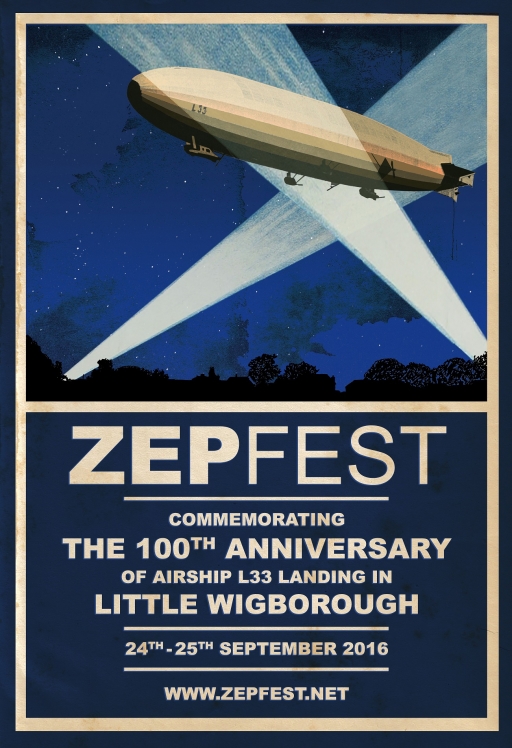The forced-landing of a German Zeppelin near a village in eastern England 100 years ago will be marked with a two-day programme of events in September 2016.
‘Zepfest’ at Little Wigborough will include audio tours, illustrated with period photographs, of the site where the First World War airship L33 came down with a loud bang in the early hours of September 24th 1916.
Talks and displays will recall the shock and alarm caused by the crash and its immediate aftermath in the Essex countryside.
“This was a momentous local event in the Great War,” explains Sir Bob Russell, present-day High Steward of Colchester.
“I recall my late father-in-law telling me how, as a teenager, he and friends had cycled from Colchester to see the massive metal skeleton frame of the Zeppelin.”
The crew of more than 20 escaped unhurt, setting fire to the wreckage to destroy technical details of interest to the British. They were taken into custody after being discovered by a local policeman on his bicycle.
The Zeppelin’s skeleton was examined and the plans were later used as a basis for the construction of the British airships R33 and R34.
Colchester High Steward Sir Bob Russell said: “I congratulate the organisers of this commemorative event for their research and presentation. It reflects our social and war-time history from a century ago, and I am confident it is something which will appeal to people of all ages.”
Visit the Zepfest website for ticket information. The events will take place in fields around Copt Hall in Little Wigborough, near Colchester, Essex.
‘Zepfest’ is appealing for the loan of memorabilia and souvenirs of the crash. Bits of L33’s wreckage were made into artefacts, including brooches and ashtrays. Contact the organisers via the ‘Zepfest’ webite.
Information & images supplied by Zepfest
Posted by: CN Editorial Team
